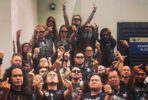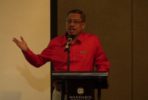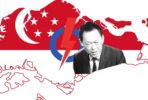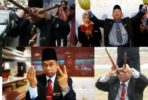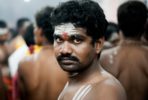Journalism don Cherian George has hit out at recent comments made by Nanyang Technological University (NTU) president Bertil Andersson on Dr George’s departure from the university after being denied tenure.
Dr George, now a professor at Hong Kong Baptist University, also alleged that he was denied tenure by NTU for political reasons, blowing open an episode both parties had been tight-lipped on, despite an outcry by students and some academics in 2013 when news of the decision broke.
In an interview with Times Higher Education — which discussed academic freedom in Singapore among other topics — Professor Andersson had said the denial of tenure to Dr George — formerly an associate professor at the Wee Kim Wee School of Communication and Information who left NTU last February — was an academic decision.
In the article published on Dec 4 titled “Singapore is ‘Asia lite’ for Western universities”, Prof Andersson was quoted as saying that Dr George was “subjected to the same scrutiny as everyone else” in the university’s tenure process, and that the decision was “not political”. A clarification by Prof Andersson to the article was made 12 days later, stating there was no intention to lower the reputation or standing of Dr George in his field of work.
According to Dr George — who was twice denied tenure by NTU and had his appeal rejected — the clarification came after he had asked Prof Andersson to retract remarks made about his case. The clarification fails to reduce the sting of Prof Andersson’s published remarks, wrote Dr George in a recent post on his blog. “They amount to a statement by the NTU president that the reason I was forced to leave his university was that I was unable to meet its academic standards required for tenure,” he wrote.
Calling Prof Andersson’s comments “incorrect, insensitive and injurious”, Dr George said only political and not academic reasons had been given for denying him tenure. He asserted that annual performance reviews after the first denial of tenure in 2009 did not highlight any deficiency in research or teaching which he was required to address in order to secure tenure.
“Instead, the only remedial actions discussed with me by any level of the university during that period were that I could perhaps try reaching out to the government, or moving to a role within the university that might be less politically sensitive than journalism education,” he added.
He called on the university president to disclose all documents relevant to the tenure case if he wished to stand by his comments. The documents include the minutes of the 2009 tenure committee, chaired by Prof Andersson, who judged Dr George, as well as his annual appraisals between the first and second tenure applications, wrote Dr George.
“NTU has told third parties that it is not appropriate to discuss personnel matters, ostensibly to protect my confidentiality. I am prepared to waive any confidentiality rights that I may have, if it agrees to reveal all the (documents mentioned). If NTU declines, that is its prerogative — but any embarrassment it avoids would not be mine,” he wrote in the post that had been shared over 2,000 times on Facebook by 11pm last night.
Contacted last night, NTU said the university has already stated its position on several previous occasions and would not be making any further comments. Previously, NTU had not commented specifically on Dr George’s case, but had said its tenure process was rigorous and “purely a peer-driven academic exercise” by internal and external reviewers.
Source: www.todayonline.com



